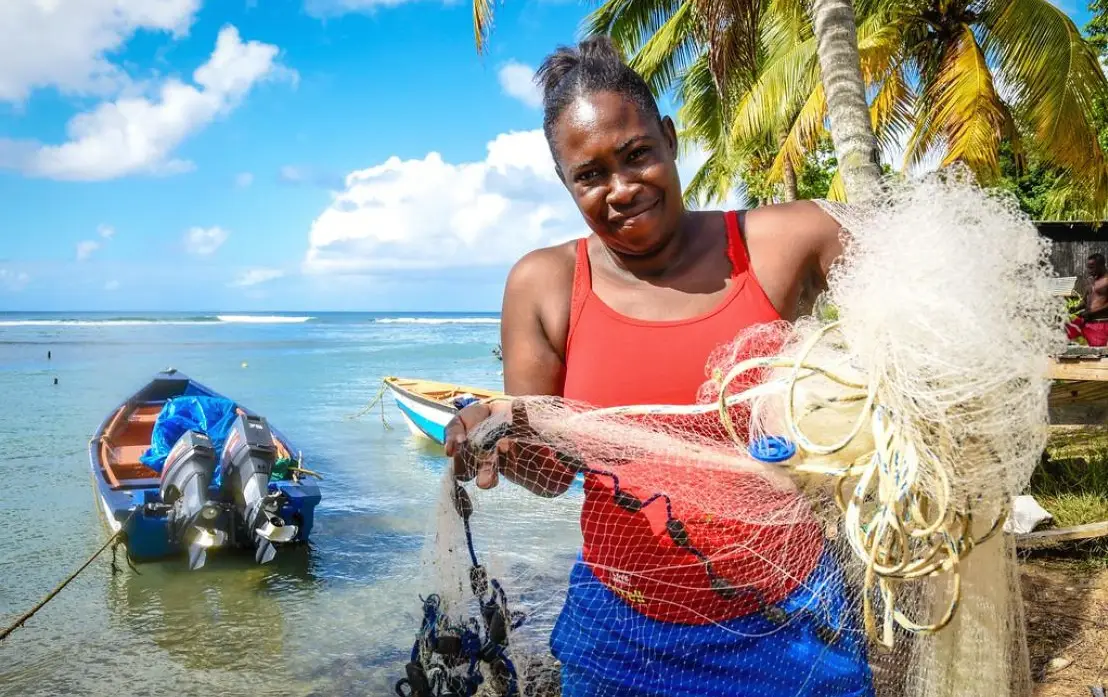The Greater Caribbean, a mosaic of biodiversity, culture, and history, faces a critical crossroads defining its future. While Caribbean states increasingly embrace the blue economy as a driver of sustainable development, the ecological foundations underpinning this vision, coral reefs, mangroves, and seagrass meadows, are collapsing under climate change and pollution.
This reality exposes a more profound contradiction: to be viable, inclusive, and enduring, the blue economy must be regenerative, rooted in participatory socio-environmental systems, nature-based solutions, regional sovereignty over marine resources, and a resilient, low-emissions energy transition. Yet this shared heritage now faces accelerating ecological threats that put these ambitions at risk.
The Blue Economy: Between Promise and Peril
Caribbean governments and multilateral institutions have promoted the blue economy as a new path to growth with sustainability. Coastal tourism, fisheries, and marine biotechnology are emerging as strategies to diversify economies traditionally reliant on international trade and large-scale tourism.
Barbados, for example, launched the world’s first “debt-for-climate” initiative, creating the Blue Green Bank with support from the Caribbean Development Bank to fund climate-resilient projects in water and sanitation. In Belize, a partnership with The Nature Conservancy enabled the conversion of US$364 million in national debt, reducing it by 12% of the country’s GDP and allocating US$180 million to marine conservation, including a commitment to protect 30% of Belizean waters. The Dominican Republic has integrated the blue economy into its national climate adaptation plan, recognizing that its marine ecosystems generate an estimated US$1.79 billion annually, approximately 1.58% of national GDP.
However, these advances remain fragile in the face of mounting ecological stress. The prevailing global development model continues to rely on a productivity-driven logic that overlooks the growing fragility of marine ecosystems. Scientific studies warn that, without urgent stabilization of CO₂ emissions, up to 94% of coral reefs will be eroding by 2050, losing more structural mass than they can build.
The paradox is evident: no blue economy can be sustained without a healthy ecological foundation.
Redefining Paradise: Climate Change and the Future of Caribbean Tourism
Warning signs are multiplying. The region is already experiencing the impacts of the climate crisis: more intense hurricanes, coastal erosion, and rising sea levels are threatening communities and infrastructure.
The frequency of Category 4 and 5 hurricanes has increased in recent decades and is projected to continue rising. Between 2000 and 2012, over 100 hurricanes directly struck the Caribbean, leaving economic, social, and environmental devastation in their wake. Even without direct landfall, Hurricane Dean in Trinidad dramatically reshaped beach profiles.
In 2024, Hurricane Beryl was the first Category 5 hurricane to hit the southeastern Caribbean in June, causing severe damage. That year’s Atlantic hurricane season ended with 18 storms, including 11 hurricanes, five of which reached Categories 3 to 5, signalling a perilous climate pattern for the region.
In the Bahamas, a significant portion of the tourism infrastructure is located in areas highly vulnerable to sea level rise. A mere one-meter increase, combined with strong storm surges, could affect up to 83% of the country’s resorts and hotels. Antigua and Barbuda, along with the Bahamas, are among the nations where coastal tourism accounts for more than half of the GDP. Shorelines that today generate billions of dollars in tourism revenue could, within a few decades, be swallowed by the sea.
Beyond extreme weather, the sargassum crisis has emerged as a serious threat. Another growing concern is. Fueled by nutrients from agricultural runoff and shifting ocean currents, massive accumulations of this seaweed suffocate coastal habitats, kill fish, and repel tourists, causing severe economic losses and burdening local governments with the costs of cleanup and ecosystem recovery.
The coral reef crisis is equally dramatic. Increasingly frequent mass bleaching events have already devastated entire ecosystems in the Virgin Islands and southern Jamaica. Adding to this is the spread of stony coral tissue loss disease, a highly lethal condition affecting multiple species rapidly destroying what remains of Caribbean reefs.
Frontline Communities Carrying Unequal Burdens
Like many crises, ecological collapse is far from equal. Coastal communities, composed mainly of vulnerable populations, Indigenous peoples, artisanal fishers, and traditional communities, are the most affected and the least equipped to respond.
In countries like Haiti and Dominica, extreme weather events have forced internal displacement, worsening food and economic insecurity. Mental health impacts are also on the rise across the region. These stressors are reshaping the coastal life.
Meanwhile, equitable access to the promised benefits of the blue economy remains elusive: investments rarely reach grassroots communities, fail to incorporate traditional knowledge, and often exclude local voices from governance processes.
A sustainable blue economy must also be a caring economy. This means upholding territorial rights, integrating local knowledge in decision-making, and ensuring equitable distribution of blue economy benefits.
Claiming the Blue Horizon: Caribbean Sovereignty and Cooperation
The Great Caribbean is more than a geographic space. It is a political and symbolic space of resistance, solidarity, and interdependence. In the face of ocean-related challenges, regional integration becomes a survival strategy, a declaration of Sovereignty, and a means to reduce external pressures on marine resources.
In this context, strengthening Caribbean science diplomacy in global agreements such as the Convention on Biological Diversity (CBD) and the UN Framework Convention on Climate Change (UNFCCC) is strategic. This will require more than rhetoric. It it demands concrete instruments of sovereignty, such as blue bonds, which link financing to conservation outcomes, with oversight, transparency, and tangible returns for local communities.
In this context, the recent “Montería Declaration” of the Association of Caribbean States (ACS), adopted on May 30 at the 10th Summit of Heads of State and Government, underscores the vital role of regional cooperation in advancing sustainable development across the Greater Caribbean. It also emphasizes the importance of strategic, inclusive, and coordinated partnerships at all levels to effectively implement the 2030 Agenda and achieve the Sustainable Development Goals (SDGs) with lasting impact.
Redefining development models, rebuilding the relationship between society and nature, and adopting a long-term strategic vision are essential steps for the future of the Greater Caribbean.
The Caribbean Sea is not merely an economic asset. It is a living territory, cradle of cultures, ancestral knowledge, and a horizon of possibilities. The region stands at a historic juncture: to continue down a path of degradation or to build a long-term regenerative blue economy rooted in care for people and ecosystems and the strength of regional cooperation.












